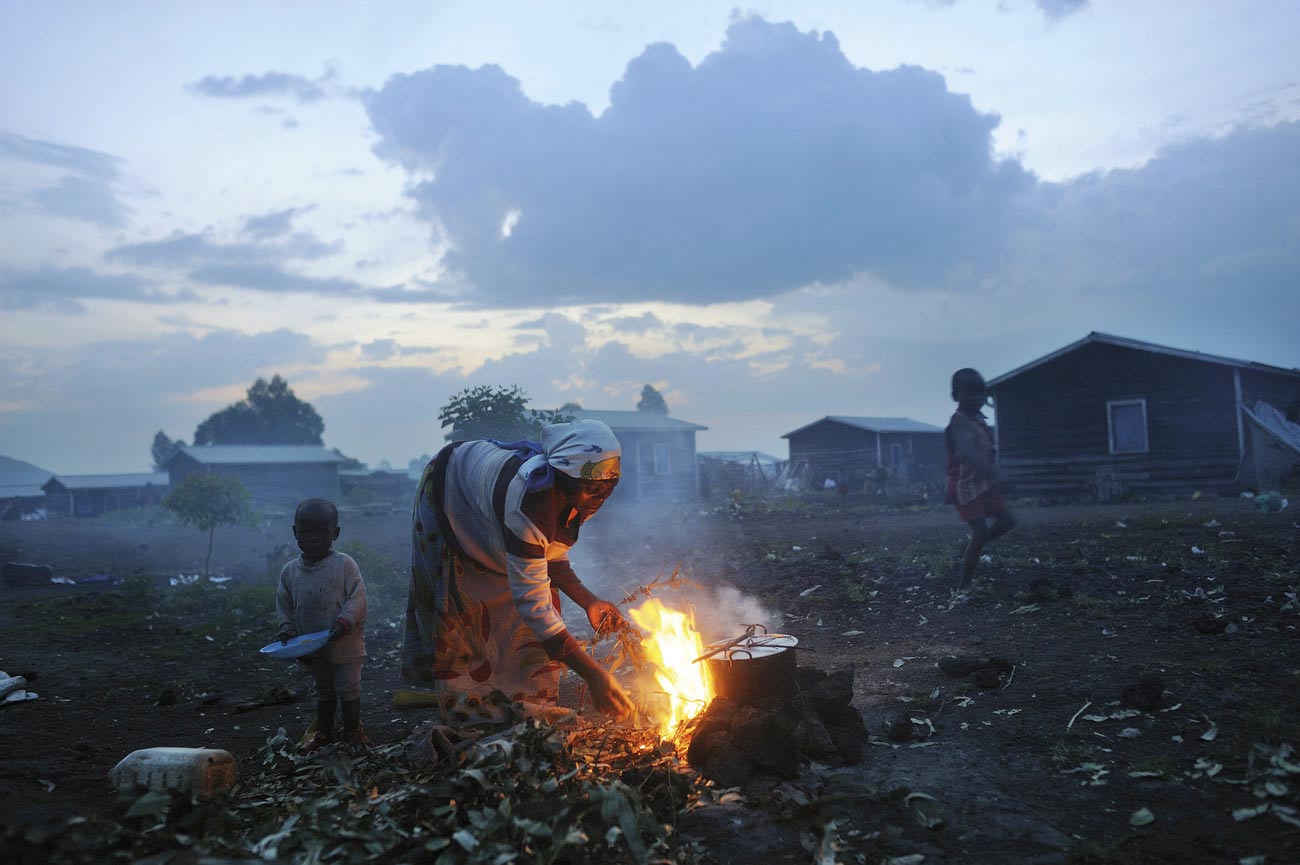I think my favorite thing about Lynsey Addario's photojournalism is her desire to show people the whole story. Rather than take photos that confirm what Americans already believe to be the circumstances in a foreign country, Lynsey looks to portray the truth, even if it isn't what people want to hear. She looks for the best in the people she photographs one-on-one as well, and I really admire that. Here is a quote from Part 2 in the book: "I also wanted to give readers a sense of Pakistani women's lives beyond religion. I knew that if the only image people saw in American publications was of women in head scarves and long black robes reading the Koran, it might be easier to dismiss their beliefs as something completely foreign and bizarre and specifically 'Islamic.' But if readers could get a sense of who these women really were- if they could see them in their homes, with their children, as they cooked meals- it might offer a more complete picture" (p. 72). This quote is one that I think gives a good idea of Lynsey's photojournalism approach- she believes in humanity and in the truth, and she risks her life on so many occasions in pursuit of it.
I think that Lynsey's work is incredible, and the sense of duty she feels to photojournalism is something I just don't understand. By the time she has spent a decade in the field, she really feels more at home in a war zone than she does relaxing at her actual apartment. While I find this crazy and I can not picture myself as a war photographer, I think its amazing and that if that's her calling, then good for her. The world needs people who are compelled to deliver compelling and honest news to the public. In Chapter 9, Lynsey and her friend Elizabeth were embedded with US troops in the Korengal Valley. Some of her most raw, compelling images were excluded from publishing because they were considered too graphic for the public eye, and I find it so wrong that the press will hide images of travesties occurring in other countries while hundreds of thousands of individuals suffer and die overseas. My biggest takeaway from Lynsey's experience and from her work is that as a photographer, you should always go the extra mile and do what you can to relate with your subjects and capture the best images possible. And- when you believe in something and pursue it with passion it will reward you later down the road.

The photo above is one of my favorites, but it's so hard to pick just one. This was taken in the Congo in Africa, and it is featured in the book in the photo section between pages 210 and 211. In this same section, I also like the close-up portrait of Bibiane, an African woman who was a rape victim, abandoned by her husband. This photo is sad and makes you wonder immediately, "Who is this woman and what has made her so sad?" Lynsey's photos ignite curiosity; they make you wonder the whole story, and they spark immediate emotion.
I would definitely recommend this book to others- it's an incredible and inspiring story, regardless of whether or not you have an interest in photojournalism. Lynsey Addario is an incredible, descriptive writer who's life is so relatable even though her circumstances are bizarre. She is an inspiring storyteller, and she has witnessed so much and has touched so many lives.
No comments:
Post a Comment